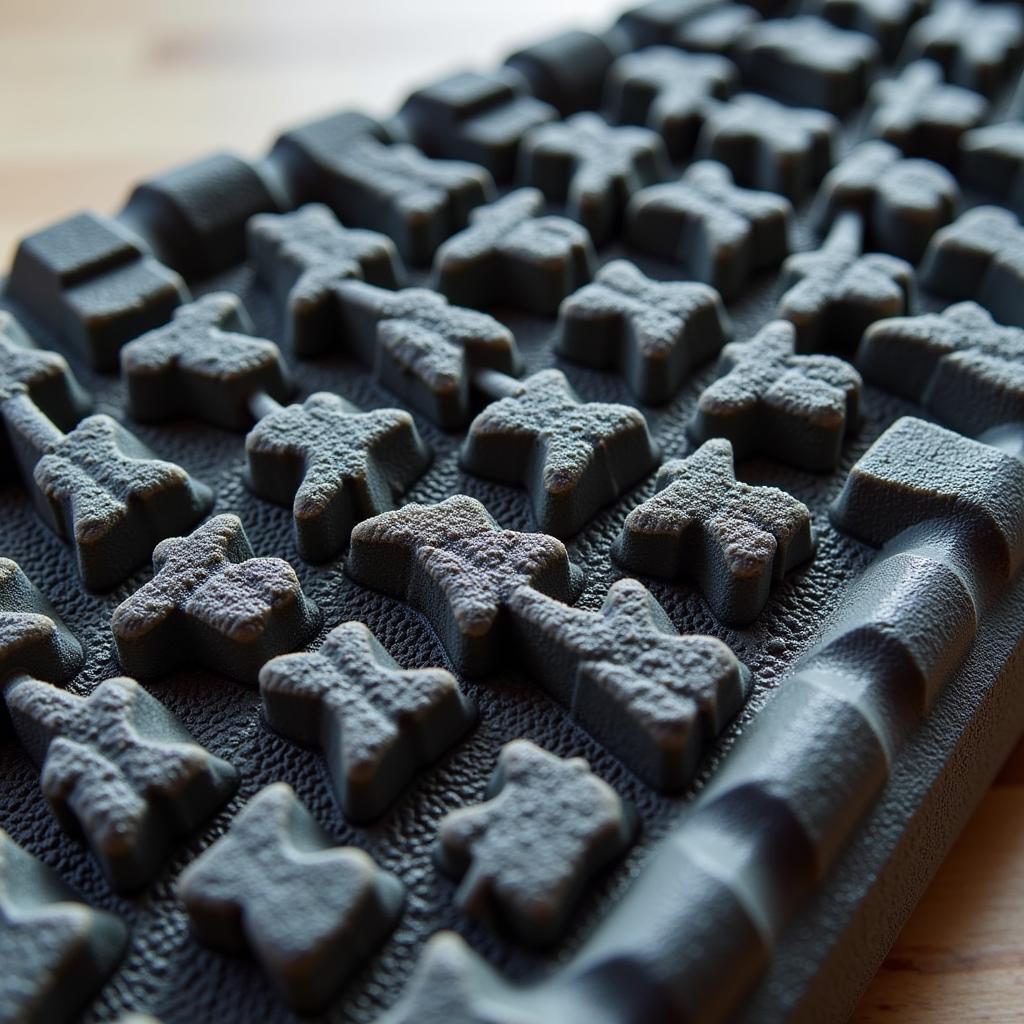Food Processing Boots are essential for maintaining hygiene and safety in food processing environments. From protecting your feet from potential hazards to preventing contamination, the right footwear is crucial. Let’s delve into everything you need to know about choosing, using, and maintaining food processing boots.
Why Food Processing Boots Matter
Food processing facilities present unique challenges, demanding footwear that goes beyond basic protection. These specialized boots are designed to withstand the rigors of the industry, providing a barrier against liquids, chemicals, and sharp objects. They also help prevent slips and falls, common occurrences in wet or greasy environments. Choosing the correct food processing boots isn’t just about comfort; it’s about safeguarding your well-being and upholding the highest standards of food safety.
Key Features to Look For in Food Processing Boots
When selecting food processing boots, consider factors beyond aesthetics. Look for features like slip-resistant soles, steel toes for impact protection, and waterproof materials. The design should be easy to clean and sanitize, with minimal crevices where bacteria can thrive. Durability is also paramount; your boots need to withstand daily wear and tear in demanding environments.
Slip Resistance: A Non-Negotiable Feature
Slip-resistant outsoles are arguably the most important feature. These specialized soles provide traction on wet and greasy surfaces, reducing the risk of slips, trips, and falls. Look for outsoles with deep treads and patterns designed for maximum grip.
 Close-up of slip-resistant outsoles on food processing boots
Close-up of slip-resistant outsoles on food processing boots
Materials: Choosing the Right Protection
Food processing boots are typically made from materials like PVC, rubber, or polyurethane. Each material offers different advantages. PVC is known for its affordability and chemical resistance, while rubber provides excellent flexibility and comfort. Polyurethane offers a balance of durability and chemical resistance. Consider the specific hazards in your workplace when selecting a material.
Comfort and Fit: A Long Shift’s Best Friend
While protection is paramount, comfort should not be overlooked. Ill-fitting boots can lead to fatigue, blisters, and decreased productivity. Look for boots with adequate cushioning and support, and ensure they fit properly, allowing for comfortable movement throughout your shift.
Maintaining Your Food Processing Boots
Proper maintenance extends the life of your boots and ensures their effectiveness. Regularly clean your boots with soap and water, paying close attention to removing any debris or contaminants. Allow them to air dry thoroughly to prevent the growth of bacteria and mold. Inspect them frequently for any signs of wear and tear, replacing them as needed.
Expert Insights on Food Processing Boot Care
“Investing in quality food processing boots is a wise decision for any food processing facility,” says Dr. Annabelle Higgins, a leading food safety consultant. “But the investment doesn’t end with the purchase. Proper care and maintenance are crucial for ensuring the longevity and effectiveness of these essential safety tools.”
“Remember,” adds Johnathan Miller, a veteran food processing plant manager, “a well-maintained boot is a safe boot. Regular inspections and cleaning are key to preventing accidents and maintaining a hygienic work environment.”
Conclusion
Food processing boots are an indispensable part of maintaining safety and hygiene in the food industry. Choosing the right pair and maintaining them properly will protect you from workplace hazards and contribute to a safer, more productive environment. Investing in quality food processing boots is an investment in your safety and the integrity of the food you help produce.
FAQ
- What are the best materials for food processing boots?
- How often should I clean my food processing boots?
- Are steel toe caps necessary in all food processing environments?
- What are the signs that my boots need replacing?
- How can I improve the comfort of my food processing boots?
- What are the different types of slip-resistant soles available?
- Where can I buy high-quality food processing boots?
If you need support, please contact us at Phone Number: 02437655121, Email: [email protected], or visit our address: 3PGH+8R9, ĐT70A, thôn Trung, Bắc Từ Liêm, Hà Nội, Việt Nam. We have a 24/7 customer service team.